Publications
February 2021
-

The likely impact of COVID-19 on the achievement of SDG 8 – The role of Trade Unions
10 February 2021
This report presents the findings of a global survey on the likely impacts of COVID-19 on the 2030 UN Sustainable Development Agenda. The survey focused on SDG 8 and specifically on four targets and two indicators for which the International Labour Organization (ILO) is a custodian agency.
January 2021
-
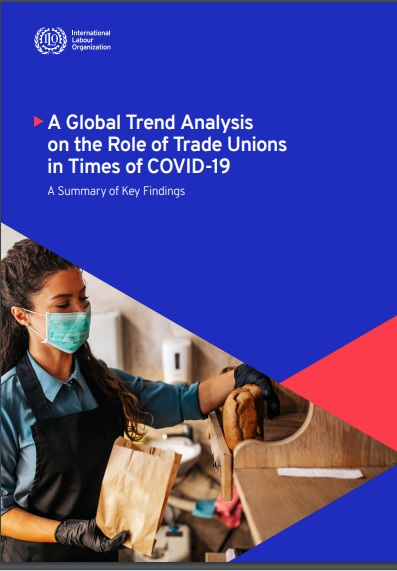
A Global Trend Analysis on the Role of Trade Unions in Times of COVID-19
25 January 2021
-

A Global trend analysis on the role of trade unions in times of COVID-19
25 January 2021
This Policy Brief is primarily directed to workers and their organizations. Its main purpose is to promote a better understanding of the pivotal role trade unions have played in COVID-19 responses worldwide either through tripartite and bipartite social dialogue, bilateral interactions with their governments or targeted actions carried out in support of their members and society as a whole.
November 2020
-
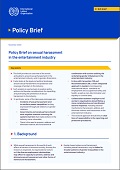
Policy Brief on sexual harassment in the entertainment industry
25 November 2020
The Violence and Harassment Recommendation, 2019 (No. 206) includes entertainment among sectors and occupations which may be particularly exposed to violence and harassment. Against this background, this brief analyses trends and patterns of sexual harassment in the entertainment industry, and it provides a picture of relevant laws and other means to protect workers in the industry.
-
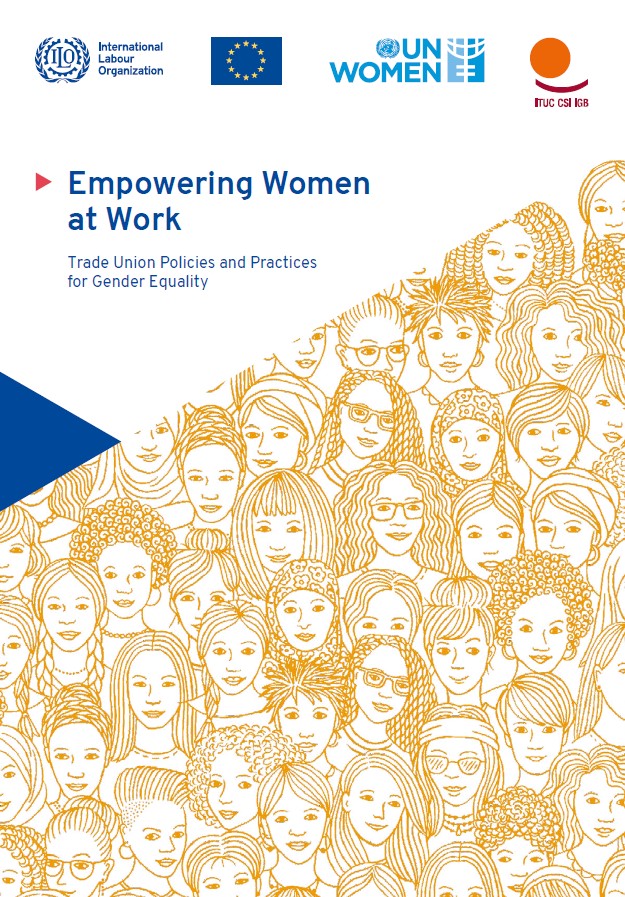
Trade union policies and practices for gender equality
17 November 2020
This paper outlines key areas where trade unions are addressing the barriers that women face in the labour market and in employment, and underlines the fact that gender equality is union business.
-
Skills Development and Lifelong Learning: Resource Guide for Workers’ Organizations
15 November 2020
October 2020
-
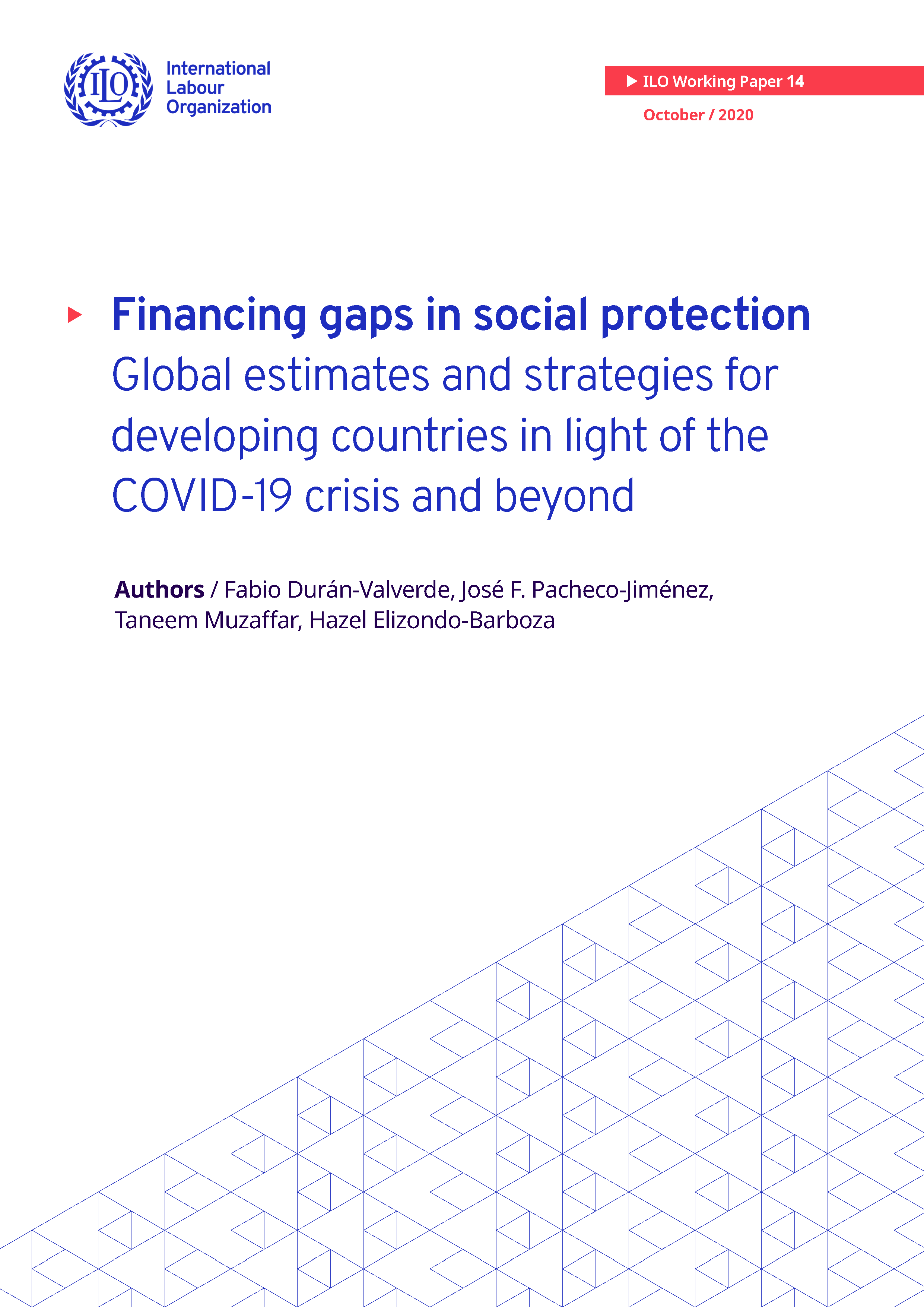
Financing gaps in social protection
21 October 2020
Global estimates and strategies for developing countries in light of the COVID-19 crisis and beyond.
-
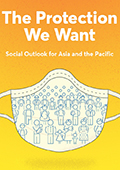
The Protection We Want: Social Outlook for Asia and the Pacific
15 October 2020
The COVID-19 pandemic has highlighted the need for well-functioning social protection systems in the region as never before. A new UN report reveals that despite their rapid socioeconomic ascent, most countries in the Asia-Pacific region have weak social protection systems riddled with gaps.
-
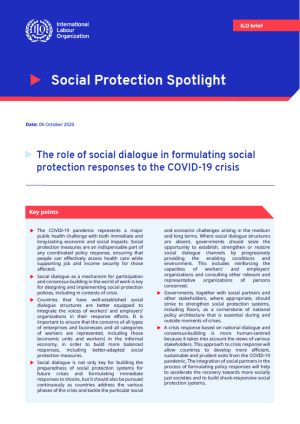
The role of social dialogue in formulating social protection responses to the COVID-19 crisis
07 October 2020
Social dialogue is not only essential for informing social protection preparedness prior to shocks, but also for formulating immediate responses in crisis contexts when there is a high risk of social conflict. Social dialogue should be pursued on a continuous basis as countries address the various phases of crises and tackle the particular challenges arising in the medium and long terms.
September 2020
-
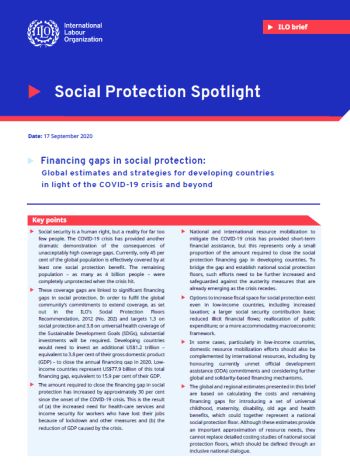
Brief on Financing gaps in social protection
17 September 2020
Global estimates and strategies for developing countries in light of the COVID-19 crisis and beyond
July 2020
-

ILO Standards on Violence and Harassment: What role for workers'organizations?
02 July 2020
This Policy Brief is primarily directed to workers and their organizations. Its main purpose is to promote the understanding of the new International Labour Standards and to raise awareness on the importance of promoting the ratification of Convention No. 190 and the application of Recommendation 206.
June 2020
-

An ILO for All Seasons-The International Labour Organization's Ways out of Crisis
29 June 2020
Over a hundred years, the ILO has developed International Labour Standards and Policy Responses to mitigate the effects of employment and social crises.The COVID-19 pandemic has shown how hasards move in a globalized world. It has highlighted the need to use the tools that are available for countering social and economic crises and securing the safety and health of workers. This book traces the development of these tools and the ways in which they have been successfully applied over the last hundred years.
May 2020
-

© P.Lopez/ AFP 2024
COVID-19 Crisis: Why ILO Employment and Decent Work for Peace and Resilience Recommendation(R205) is relevant for Trade Unions?
02 May 2020
ILO Employment and Decent Work for Peace and Resilience Recommendation (R205), which was adopted by the International Labour Conference (ILC) in June 2017, provides detailed guidance to constituents on how best to deal with crisis situations arising from conflicts and disasters.
-

© Chassenet / BSIP via AFP 2024
COVID-19 Crisis: Why ILO Social Protection Floors Recommendation (R202) is relevant for Trade Unions?
02 May 2020
ILO Recommendation (R202) was adopted by ILO constituents in the aftermath of the 2008 financial and economic crisis, expressing the commitment of member States to ensure that all members of society enjoy at least a basic level of social protection throughout their lives.
-

© Xavier Donat 2024
Importance of the effective respect and implementation of ILO’s International Labour Standards in the context of the outbreak of COVID
02 May 2020
In situations of crisis, such as the one the world is facing with COVID-19, it is crucial to respect and implement International Labour Standards (ILS) within the framework of the rule of law.
-
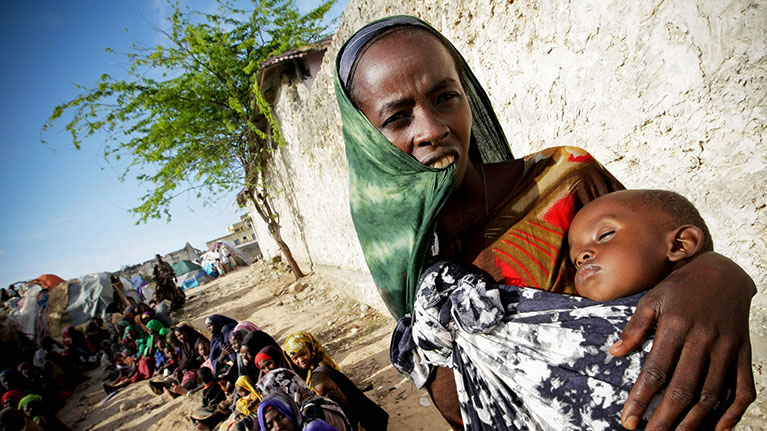
© Stuart Price / UN Photo 2024
COVID-19 Crisis: Why the ILO Social Security Convention (C102) is relevant for Trade Unions?
02 May 2020
ILO Convention (C102) is the only international instrument that establishes worldwide-agreed qualitative and quantitative minimum standards for all nine branches of social security. Why this Convention is relevant for Trade Unions in the context of the COVID-19 Crisis?
April 2020
-
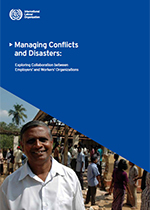
Managing Conflicts and Disasters: Exploring Collaboration between Employers’ and Workers’ Organizations
09 April 2020
This publication looks at the role that employers and workers, through their respective organizations, play in crisis situations arising from conflict and disaster.
-
ILO ACTRAV Analysis: Governments'Responses to COVID-19 (6 April 2020)
06 April 2020
Please check also the ILO COVID-19 country policy responses portal for the latest information on Governments’ responses ...
-
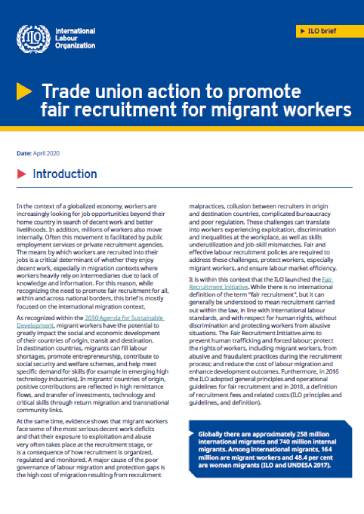
Trade union action to promote fair recruitment for migrant workers
01 April 2020
This brief highlights trade union action to promote and protect fair recruitment for migrant workers through actions including policy advocacy, service provision and outreach.
March 2020
-

© dronepicr 2024
COVID-19 and R205: what role for workers’ organizations?
24 March 2020
This note prepared by the ILO’s Bureau for Workers’Activities (ACTRAV) shows why the ILO Recommendation No 205 on Employment and Decent Work for Peace and Resilience (R205) is an effective instrument for governments, employers and workers organizations to address the Coronavirus (COVID-19) pandemic.